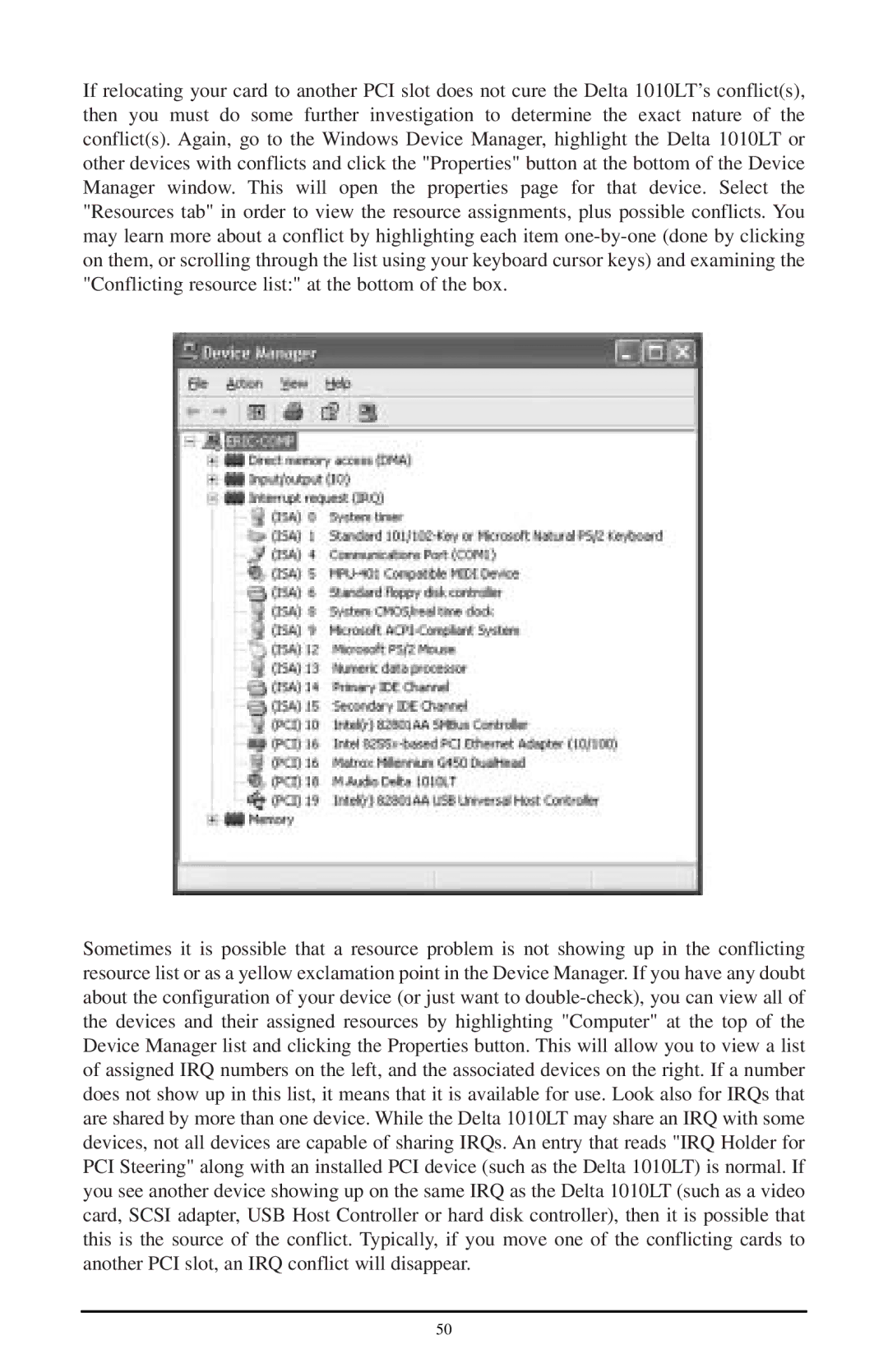
If relocating your card to another PCI slot does not cure the Delta 1010LT’s conflict(s), then you must do some further investigation to determine the exact nature of the conflict(s). Again, go to the Windows Device Manager, highlight the Delta 1010LT or other devices with conflicts and click the "Properties" button at the bottom of the Device Manager window. This will open the properties page for that device. Select the "Resources tab" in order to view the resource assignments, plus possible conflicts. You may learn more about a conflict by highlighting each item one-by-one (done by clicking on them, or scrolling through the list using your keyboard cursor keys) and examining the "Conflicting resource list:" at the bottom of the box.
Sometimes it is possible that a resource problem is not showing up in the conflicting resource list or as a yellow exclamation point in the Device Manager. If you have any doubt about the configuration of your device (or just want to double-check), you can view all of the devices and their assigned resources by highlighting "Computer" at the top of the Device Manager list and clicking the Properties button. This will allow you to view a list of assigned IRQ numbers on the left, and the associated devices on the right. If a number does not show up in this list, it means that it is available for use. Look also for IRQs that are shared by more than one device. While the Delta 1010LT may share an IRQ with some devices, not all devices are capable of sharing IRQs. An entry that reads "IRQ Holder for PCI Steering" along with an installed PCI device (such as the Delta 1010LT) is normal. If you see another device showing up on the same IRQ as the Delta 1010LT (such as a video card, SCSI adapter, USB Host Controller or hard disk controller), then it is possible that this is the source of the conflict. Typically, if you move one of the conflicting cards to another PCI slot, an IRQ conflict will disappear.

